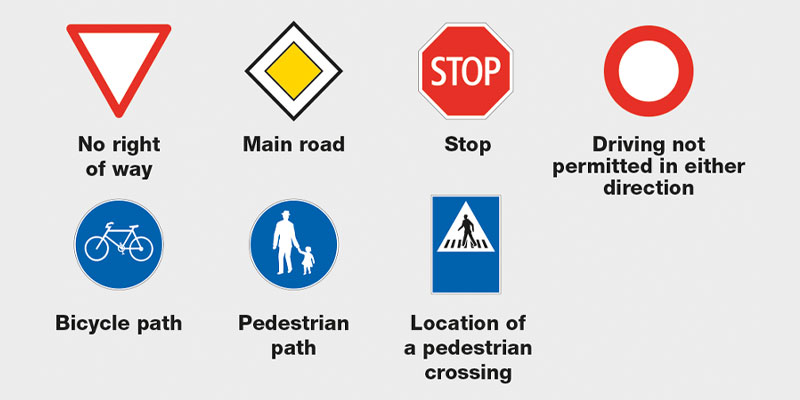Living safely together in Switzerland
Welcome!
The Swiss Federal Constitution outlines the fundamental rules for living together in Switzerland and takes precedence over all other laws. No other law may violate the Constitution.
All those living in Switzerland have rights and obligations that are granted under the Swiss Federal Constitution and by law. These apply independently of whatever political, religious, social or other beliefs or convictions a person may have.
The Federal Constitution enshrines the most important fundamental rights.
The following applies
- Everyone is equal before the law. Discrimination and racism are forbidden.
- Men and women have equal rights and determine their own lives.
- Everyone is free to express their opinion, provided they do not insult, threaten or incite violence against others.
- Everyone is free to choose their religion and practise their faith peacefully.
Road safety
Certain rules apply to ensure that everyone can use public roads safely. These must be observed on foot, on a bicycle, or in a car and in connection with other vehicles. In order to avoid accidents, it is important that all road users behave in a respectful and exemplary way and show consideration to other people and vehicles.
On foot

Walk only when the car has stopped (eye contact).

Use the footpath.

Use the pavement. If there is no pavement, walk by the side of the road.

Wait when red; walk when green.
On a bicycle

Be sure to always wear a bicycle helmet.

Observe the signs and right of way.

Use the bicycle path.

Use the road and ride on the right-hand side.

Look around and signal with your hand.

Only one person on a bicycle.
Other important considerations, laws and signs

Wear light-coloured clothing and use the light on your bicycle.

Always wear a seatbelt when in a car. This also applies to those in the back seat.

Do not use your mobile phone while driving.

It is not permitted to use alcohol or drugs while on the road.

Signs indicate who has right of way and where you can drive. They also indicate possible hazards.

Public transport is not free and requires you to have a valid ticket.
Help and advice
Emergency assistance (free numbers 24 hours a day)
Die Dargebotene Hand – anonymous help for adults | Tel. 143
Pro Juventute – anonymous help for children and teenagers | Tel. 147
General and legal advice
Swiss refugee council | Tel. 031 370 75 75
Frabina – counselling for binational couples and families | Tel. 031 381 27 01
Advice in cases of domestic and sexual violence
Forced Marriage Service | Tel. 0800 800 007 (in German, French and Italian)
Professional association of counselling against violence – Help for perpetrators of violence (in German and French)
National competence centre for violence-free ageing | Tel. 0848 00 13 13 (in German, French and Italian)
Radicalisation and extremism
Contact points Radicalisation and extremism
Racism / Discrimination
LGBTIQ-Helpline | Tel. 0800 133 133
Counselling network for victims of racism (in German, French and Italian)
Reporting plateform for Online Racist Hate Speech
Foundation against racism and anti-Semitism (in German and French)
